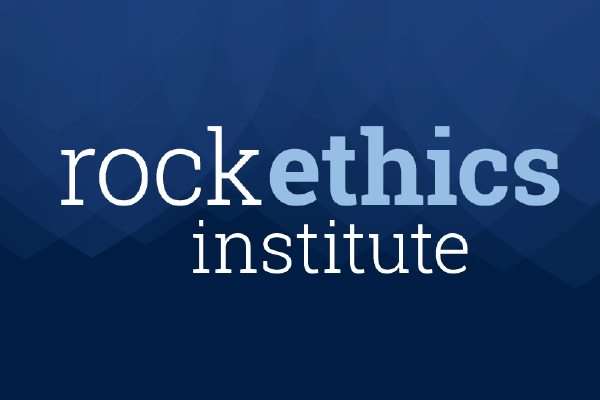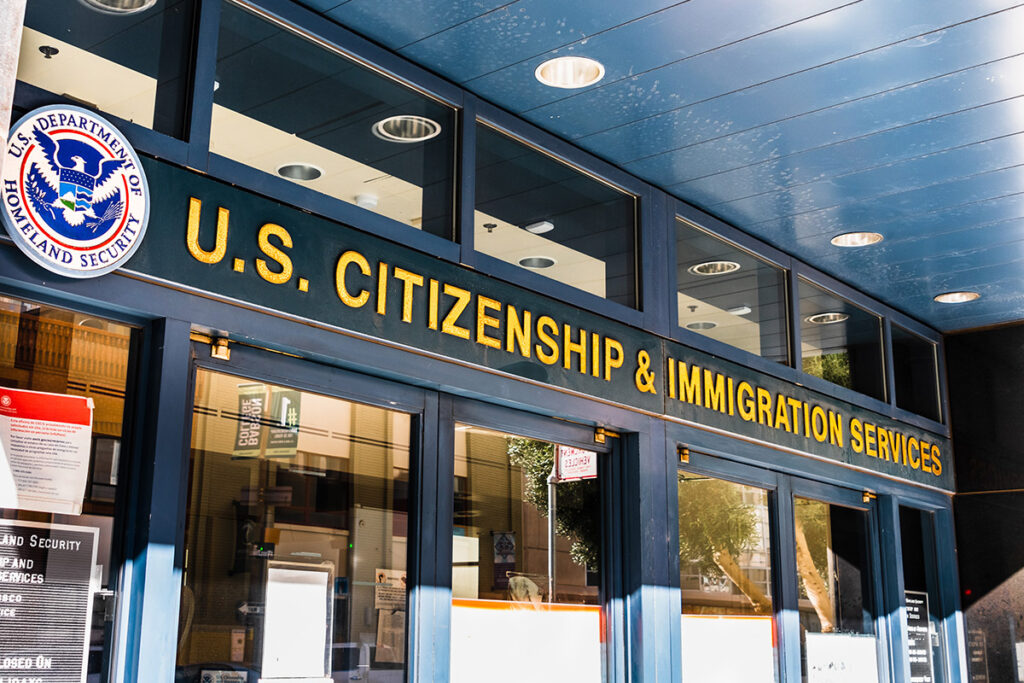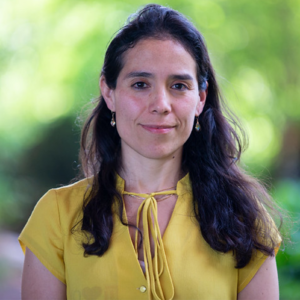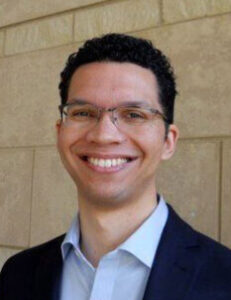Initiatives and Projects

This initiative creates a partnership between the Rock Ethics Institute and a five-year, NSF-funded project doing stakeholder-driven research to inform regional and municipal-level climate adaptation planning in the Northeastern USA (Philadelphia, NYC, and New Jersey). The partnership supports the integration of equity considerations and other stakeholder values into the assessment of potential strategies for managing changing coastal climate risks.
Primary Investigator(s):

The Consortium on Moral Decision-Making is an interdisciplinary network of scholars in the social sciences (and humanities) dedicated to studying empathy, ethics, and moral decision-making. In 2023-2024, we continued to develop an interdisciplinary network of researchers on ethics and morality here at Penn State. This started in the fall with several internal talks by scholars at Penn State, including a fall highlight of a political polarization research meeting that we followed up with to develop research project ideas in the spring. We launched a website to create a further digital imprint and coordinated with several Penn State departments and institutes to broaden the reach and impact of our work. In the spring, we awarded nearly $20,000 in seed grants to develop new interdisciplinary research projects. We continued with the Expanding Empathy Speaker Series for the sixth year, bringing together psychologists and philosophers to talk about ethics and empathy – the Zoom format once again allowed us to invite speakers around the world and also have a broad international audience. Lastly, the capstone was the Expanding Empathy Special Event on Empathy, Morality, & AI, a hybrid conference that brought together researchers in psychology, philosophy, engineering, and computer science to talk about scientific and normative implications of AI. In sum, the internal and public-facing morality events helped to launch the first formal year of the Consortium on Moral Decision-Making and forward our research community.
Primary Investigator(s):

The Critical Philosophy of Race Initiative is one of the oldest initiatives of the Rock and is now in its fifteenth year. It has two primary purposes: first, to aid with the recruiting, mentoring, and placing of especially African American graduate students (though in practice it has been extended to include especially Latin Americans). This was in response to the historic (and continuing) shortage of African American philosophers. For this reason, this part of the initiative was extended to include working with them after graduation as they prepared for tenure. This work was done through the Cultivating Underrepresented Students in Philosophy (CUSP) Initiative. The other primary focus on the Initiative has been the journal Critical Philosophy of Race, published by Penn State University Press and now entering its twelfth year.
Primary Investigator(s):

Feminist Philosophers: In Their Own Words began as a grant from the American Philosophical Association to the Rock Ethics Institute to support the work of Nancy Tuana and Joan Callahan. The videos were designed to provide educators and scholars with in-depth, digitally filmed interviews with many of the scholars who generated and initially sustained feminist philosophy in North America. The interviews provide an excellent introduction to the philosophical approaches of these theorists, as well as assisting scholars in understanding the ways n which social movements such as civil rights, anti-war, and women’s movements of the 1060s and 1070s influenced academic scholarship.
Primary Investigator(s):

An involuntary psychiatric commitment legally detains and provides inpatient treatment to individuals experiencing mental health crises and who are, therefore, deemed to be a danger to themselves and/or others. While sometimes beneficial, the process infringes upon personal liberty and autonomy, and it can have long-term, detrimental impacts on those subject to such involuntary psychiatric detention. Due to the invasive nature of this governmental intervention achieved via the exercise of police power, approximately half of U.S. states make involuntary commitment data, stripped of individual identifiers, publicly available to: provide transparency and accountability; improve health policy; and bolster community awareness. Such public reporting is typically mandated in the statutory scheme establishing involuntary psychiatric detention. Even though the Pennsylvania Department of Human Services and the Pennsylvania State Police collect involuntary commitment data in accord with statutory mandate, these data are not available to the public. A review of relevant literature, funding documents, statutes, and the submission of several Right-to-Know requests demonstrate the necessity of public access to these data. The inaccessibility of this dataset inhibits evidence-based practices, obfuscates trends and systemic concerns, mystifies a practice impacting members of the public, and fails to align with the principles of beneficence and justice. Considering these societal and ethical implications, we aim to convene a symposium of bioethicists, data scientists, mental health clinicians, researchers, and policy makers to catalyze knowledge on data-accessibility approaches, identify barriers, and examine best practices. We also intend to petition legislators to help in acquiring state-wide involuntary commitment data and amending statutes governing involuntary commitment.
Primary Investigator(s):

Funded by Vice-President for Research, https://ccresearch.psu.edu/c3n/
Co-convened by MaryEllen Higgins, Judith Newman, and Brian Onishi, this initiative focuses on the ethics of lingering trauma in films and eponyms. Using a collective, interdisciplinary approach to ethical dilemmas and solutions, the initiative examines, for example, the representations of discrimination, criminalization, violent conflict, assault, and climate anxiety in film, and the re-presentations of trauma when buildings, awards, and diseases are named after people who have committed ethically egregious acts.
Primary Investigator(s):

FIELDS is an interdisciplinary research/teaching initiative dedicated to agricultural and food ethics, hosted by the Rock Ethics Institute and convened by Robert Chiles. We operate as an ad-hoc, informal professional network for research, grant writing, publishing, peer-to-peer faculty mentoring, and student training. In 2023-2024, our primary projects involving REI funding were: (1) “The End of Eden,” a presentation and book signing by the South African environmental writer Adam Welz; (2) “Facilitating Ethical Decision-Making among School Foodservice Stakeholders”; and (3) The Ethical and Political-Economic Implications of Cellular Agriculture in Southern Africa (Chiles, Sharma, Costello, Ransom).
Primary Investigator(s):

Half of all antibiotics are estimated to be used in our food system annually, with an expected increase in the next twenty years, due to intensification of livestock production in developing countries. Simultaneously, we have seen an increase in antimicrobial resistance (AMR). Adopting a transition pathways model our study increases knowledge and awareness among dairy farmers by providing farmers the results of the presence of antimicrobial resistant genes (AMRg) from fecal samples collected from their farms, while also encouraging a dialogue surrounding antimicrobial usage on the farm. This proposal extends upon previous REI & CSRE funded research, except we are requesting funds to administer a slightly different genetic test on farms. As far as we are aware our research is the first to combine on-farm AMRg testing with social science data. Additional seed funding will allow us to run a different genetic test to quantify the presence of specific genes on farms. Slowing AMR is an ongoing challenge that contains multiple ethical issues, and there will be no single solution. Increasing the dialogue surrounding the challenges of managing AMR for both humans and animals moving forward will prove critical to ensure highly productive and sustainable food systems.
Primary Investigator(s):

Cellular agriculture (the production of meat and dairy products from tissue engineering and precision fermentation) could have a profound impact on global development. Proponents of the technology argue that it could improve food security, sustainability, and animal welfare, while critics of the technology argue that it could increase socioeconomic inequality (Chiles, 2021; Broad and Chiles, 2022). In order to learn more about the recent emergence of this technology in South Africa, PI Chiles visited with three South African cellular agriculture companies and academics at four South African universities in June 2022. The purpose of this seed grant was to follow up on this visit, and we did this by organizing an interdisciplinary, exploratory workshop and follow-up interviews with key stakeholders in Cape Town (July 2023). Findings were used to write a workshop report (in progress) and provide preliminary results for PI Chiles’ Fulbright application (successful). This seed grant is moreover providing an opportunity for Penn State faculty to collaborate on the Institute for Poverty, Land and Agrarian Studies’ complementary work on digital agriculture, livestock, and climate change. Here, we are exploring how narratives of scarcity on food security and climate change might drive the cellular agriculture agenda (to the potential detriment of smallholder livestock producers). We are also exploring the potential impact of land reform on climate mitigation and the emergence of digital agriculture in Sub-Saharan Africa. Chiles’ forthcoming book chapter on technology and social change further embeds these questions and topics within a broader ethical framework.
Primary Investigator(s):

Many debates over policing are, at their heart, questions about ethics, justice, and politics. The Policing, Policy, and Philosophy Initiative (3PI) draws on tools from philosophy to understand policing’s role in society and inform policy. Through its events and resources, 3PI fosters collaboration among philosophers and ethicists, highlights research in philosophy on policing, and connects scholars with policymakers and community leaders.
Primary Investigator(s):

It is widely understood that individuals are entitled to the human right to freedom of movement within the states they inhabit. However, this right does not easily generalize to the human right to international freedom of movement across state borders. On one hand, proponents of states’ right to exclude non-citizens have argued that states’ right to self-determination pose a legitimate constraint on non-citizens’ freedom of movement. On the other hand, proponents of “open borders” tend to argue that other ethical considerations trump states’ right to self-determination. The right to freedom of movement, however, remains under-theorized. Three desiderata are required for a proper account of the right to free movement. Firstly, we must understand its requirements. Which goods or resources, if any at all, might possession of this right entitle us to? Secondly, we need a sense of its weight. Why is it assumed that the right to free movement is sufficient to ground domestic free movement, but not international free movement? Finally, and most importantly, we must understand the grounds of the right to free movement. Why even recognize the right to free movement as constitutive of a basic human interest? My project responds to these questions.












